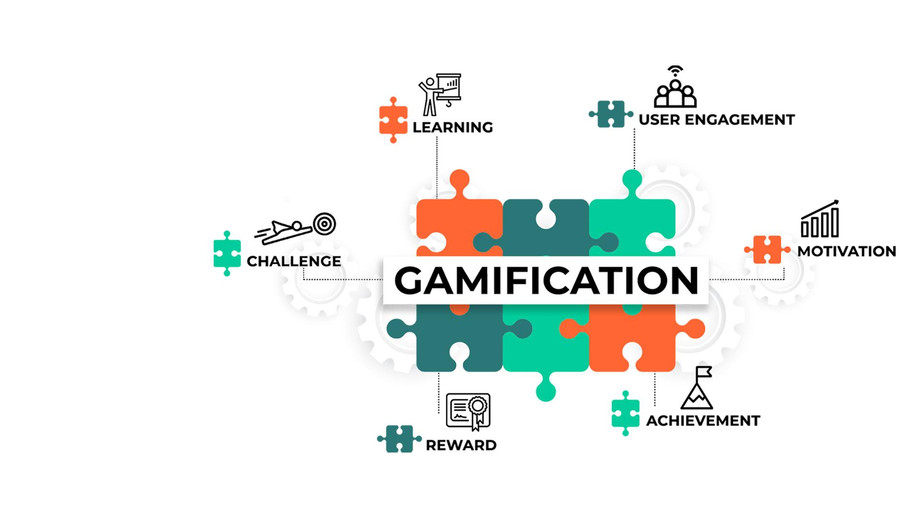Playing games makes us happy. It takes us back to our childhood and gives us a sense of freedom. The inherent joy of gaming transcends mere entertainment, tapping into our primal instincts for challenge and achievement. When we engage in games, we automatically jump into action and put our best foot forward when we face a challenge. We are more than willing to use our cognitive abilities, jog our memory, pay attention, and employ our skills – all to somehow win. This drive and enthusiasm that games evoke are not just about fun; they have profound benefits for our cognitive, physical, and social development.
Cognitive Benefits of Gaming
It’s a fact that playing games improves our problem-solving and fine-motor skills. Games often require players to navigate complex environments, solve intricate puzzles, and make strategic decisions. These tasks engage various cognitive processes such as critical thinking, spatial awareness, and logical reasoning. For instance, strategy games like chess or modern video games like "Civilization" demand foresight and planning, honing players' ability to anticipate and strategize several moves ahead.
Moreover, gaming builds better hand-eye coordination. Action games, in particular, necessitate precise control and quick reflexes. Players must often respond rapidly to on-screen stimuli, synchronizing their hand movements with visual cues. This coordination not only enhances gaming performance but can also translate to improved motor skills in real-life activities, such as sports or even surgical procedures.
Enhancing Decision-Making Skills
Gaming helps make accurate decisions. In the heat of gameplay, decisions must be made swiftly and effectively. Whether it’s deciding the best route to evade an enemy in a shooter game or choosing the right moment to strike in a fighting game, players learn to evaluate situations quickly and act decisively. This rapid decision-making process enhances their ability to process information efficiently and respond under pressure, skills that are invaluable in real-world scenarios such as driving, emergency response, and high-stakes business environments.
Social and Emotional Benefits
Playing games also improves our prosocial skills. Many games, especially multiplayer and cooperative games, require teamwork and communication. Players must collaborate, share resources, and develop strategies together to achieve common goals. This collaborative environment fosters social interaction, helping players build and strengthen relationships. Additionally, it promotes empathy and understanding as players work together, often forming lasting bonds and learning to appreciate diverse perspectives.
The sense of camaraderie and achievement in games can also boost self-esteem and emotional well-being. Successfully overcoming challenges and reaching goals within games provides a sense of accomplishment and pride. This positive reinforcement encourages players to take on new challenges, both in-game and in their everyday lives, fostering a growth mindset and resilience.
The Physical Thrill of Gaming
Playing games gives an adrenaline rush that excites and engages us. This physiological response is due to the immersive and often high-stakes nature of many games. The thrill of competition, the excitement of overcoming difficult obstacles, and the joy of victory all contribute to this adrenaline surge. This heightened state of arousal not only makes gaming enjoyable but also sharpens focus and concentration, enabling players to immerse themselves fully in the experience.
The engagement and excitement provided by games can also serve as a powerful motivator. Gamification, the application of game-design elements in non-game contexts, leverages this principle to enhance motivation and engagement in various fields such as education, business, and healthcare. By incorporating elements like points, badges, and leaderboards, gamification taps into the intrinsic motivation that games provide, making mundane tasks more appealing and encouraging sustained effort and participation.
Broader Impacts on Learning and Development
The benefits of gaming extend to educational contexts as well. Educational games, or "edutainment," combine learning objectives with game mechanics to create engaging and effective learning experiences. These games make learning fun and interactive, often resulting in better retention and understanding of complex subjects. For example, games that teach coding skills through interactive puzzles or history through immersive narratives can make these subjects more accessible and enjoyable for learners of all ages.
Furthermore, the problem-solving and critical thinking skills developed through gaming can enhance academic performance. Research has shown that students who regularly engage in strategic and problem-solving games tend to perform better in subjects such as mathematics and science. The interactive nature of games encourages active learning, where players experiment, hypothesize, and learn from their mistakes, mirroring the scientific method.
Promoting Mental Health and Well-being
Gaming can also have positive effects on mental health. For many, games provide a much-needed escape from the stresses of daily life, offering a safe and controlled environment to unwind and relax. This escapism can be therapeutic, helping players manage stress and anxiety. Additionally, games with immersive narratives and compelling characters can provide emotional catharsis and a sense of connection, alleviating feelings of loneliness and isolation.
Moreover, games designed with mental health in mind, such as those that promote mindfulness or cognitive behavioral techniques, can directly contribute to mental well-being. These games encourage players to engage in activities that promote relaxation, self-reflection, and positive thinking, providing tools for managing mental health in an accessible and engaging format.
Conclusion
In summary, playing games is far more than a trivial pastime. It takes us back to our childhood, evokes a sense of freedom, and harnesses our natural desire to overcome challenges. The cognitive, social, emotional, and physical benefits of gaming are vast, improving problem-solving abilities, fine-motor skills, hand-eye coordination, decision-making, and prosocial behaviors. The adrenaline rush and engagement games provide keep us excited and immersed, enhancing focus and concentration. By integrating gaming principles into education, mental health strategies, and everyday activities, we can leverage the joy and benefits of gaming to enrich our lives and foster personal growth and development.

